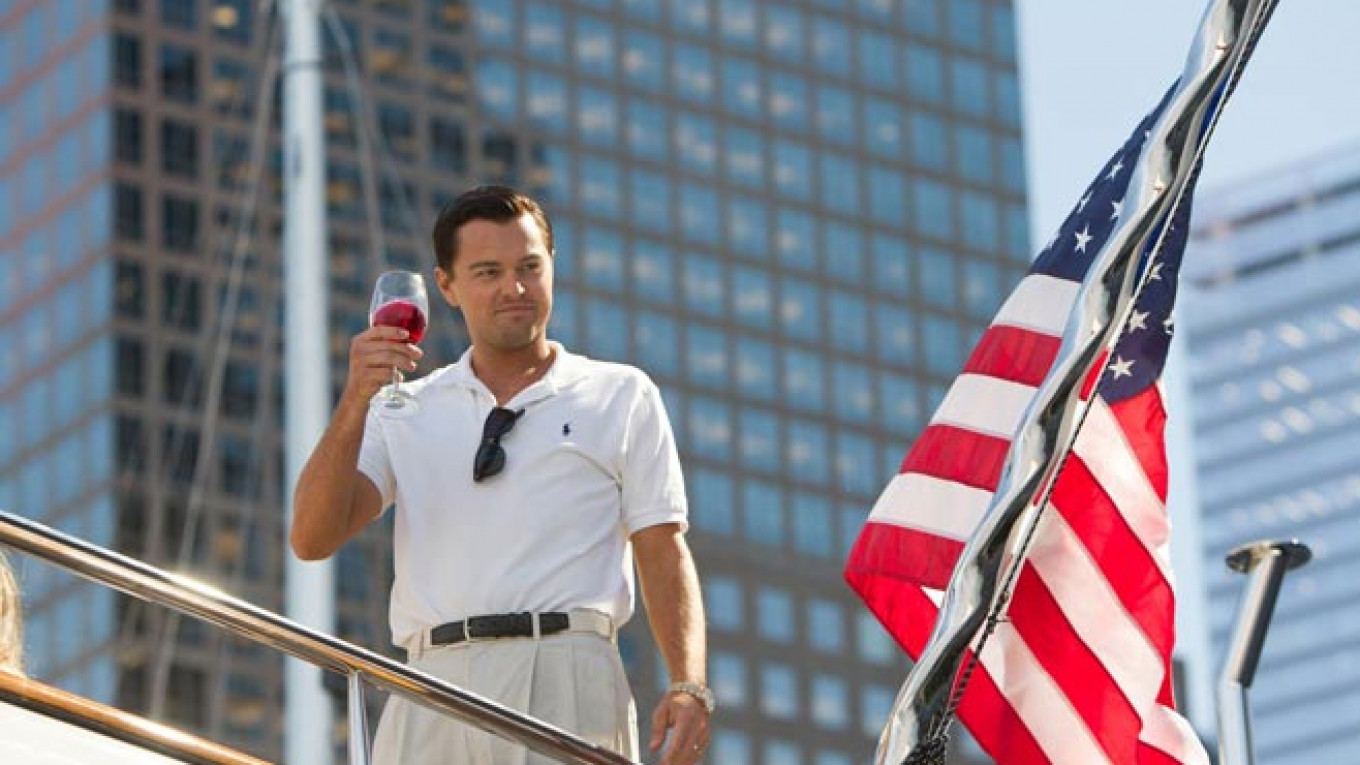Five movie theater chains have been fined a total of 4 million rubles ($113,328) for showing the Hollywood blockbuster "The Wolf of Wall Street," which the central court of Novosibirsk deemed to be propagandizing narcotics use.
In February, the Novosibirsk branch of the Federal Service for Narcotics Control brought a case against six companies holding a total of 10 movie theaters for showing "The Wolf of Wall Street," saying that the film "reflected a subculture of drug abusers" and idealized the use of narcotics, Itar-Tass reported.
Viktor Ivanov, director of the Federal Service for Narcotics Control, said the order to pursue movie theaters had not come from him, and no cases have been brought against theaters for showing the film outside of Novosibirsk.
However, the Novosibirsk Regional Court on Friday sided with the local branch of the narcotics control service in finding the theater chains guilty under the Russian federal statute outlawing the propagandization or idealization of narcotics use.
Representatives of the theater chains continue to maintain that the court and local narcotics control service have no basis for their claims, as the film was approved by the Culture Ministry. "The Culture Ministry bears responsibility for the content of the film," said Yelena Dmitriyeva, director of the Kinositi theater chain, Colta.ru reported.
Kinoalliance, a nonprofit lobbying organization working on behalf of theater chains in Russia, announced its intention to support the defendants in appealing the decision. Mikhail Shvydko, special representative of the president for cultural cooperation, also expressed support for the defendants and described the situation as absurd: "Unfortunately, the current law code is so confused and contradictory that pretty much anything could fall under any kind of criminal punishment," Vzglyad business newspaper reported.
The film "The Wolf of Wall Street" stars Leonardo DiCaprio as a cocaine-snorting, pill-popping stockbroker and financier who makes money hand over fist via dubious methods before being busted and imprisoned. The film was released in December 2013 and has grossed more than $389 million worldwide.
Novosibirsk law enforcement is not alone in criticizing the film: It has been banned entirely in Malaysia, Nepal and Kenya due to its depiction of sex, drugs and profanity. Scenes were removed from the version distributed in India, and Singapore has allowed to film to shown only in a small number of theaters. In the U.S., animal rights activists criticized the film's use of apes as cruel and traumatic.
Contact the author at g.golubock@imedia.ru
A Message from The Moscow Times:
Dear readers,
We are facing unprecedented challenges. Russia's Prosecutor General's Office has designated The Moscow Times as an "undesirable" organization, criminalizing our work and putting our staff at risk of prosecution. This follows our earlier unjust labeling as a "foreign agent."
These actions are direct attempts to silence independent journalism in Russia. The authorities claim our work "discredits the decisions of the Russian leadership." We see things differently: we strive to provide accurate, unbiased reporting on Russia.
We, the journalists of The Moscow Times, refuse to be silenced. But to continue our work, we need your help.
Your support, no matter how small, makes a world of difference. If you can, please support us monthly starting from just $2. It's quick to set up, and every contribution makes a significant impact.
By supporting The Moscow Times, you're defending open, independent journalism in the face of repression. Thank you for standing with us.
Remind me later.


